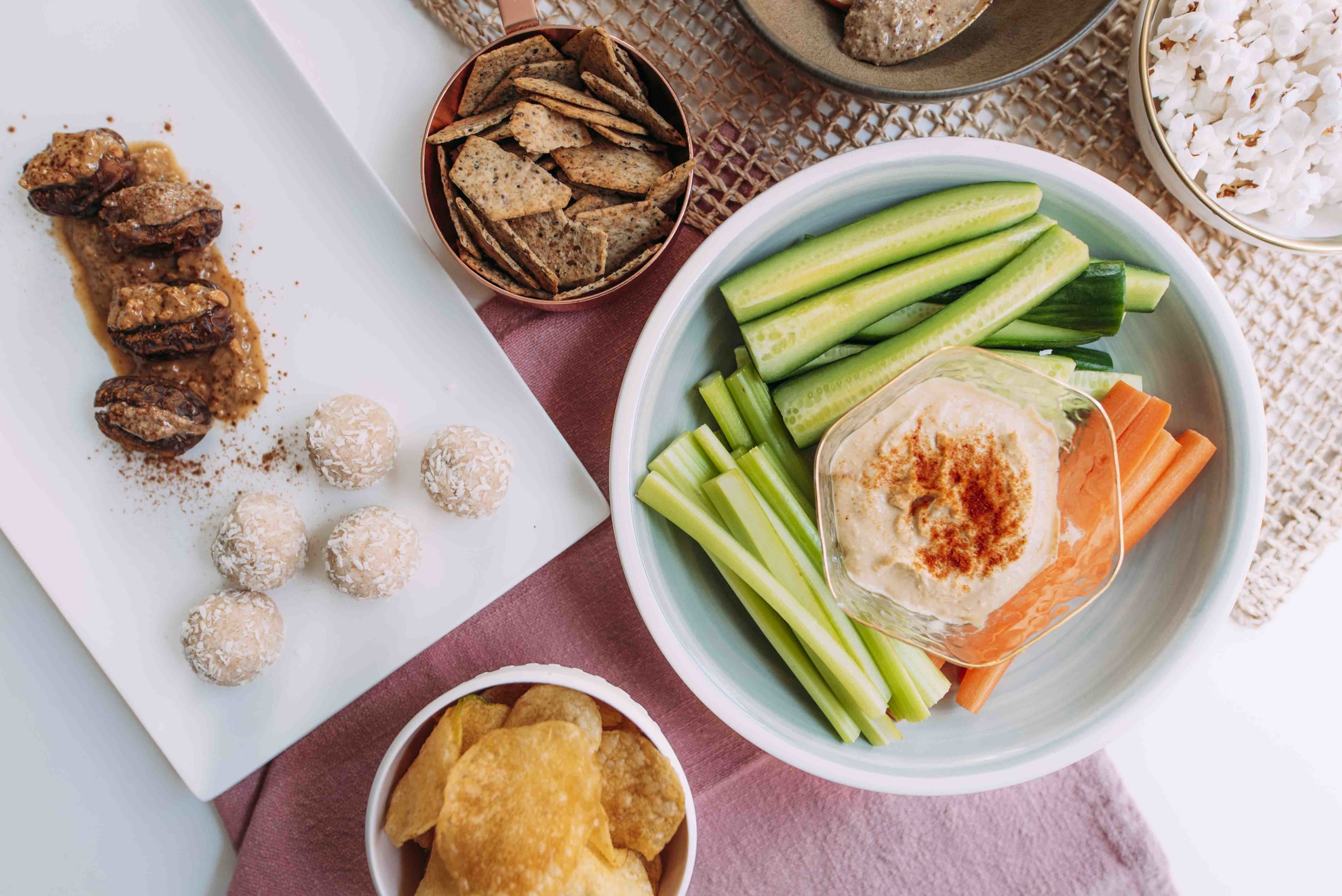Article contributed by: Amanda Steinberg, B.Sc, P. Dt. Co-founder and director of openspace clinic
You feel bored, stressed out, and have too much time on your hands. You take a few steps to your kitchen and search for something to soothe you. Leftover black bean brownies? Veggie Straws? Cold cauliflower gnocchi?
Learning to be more responsive than reactive to your snacking stimulus will keep your mind calm and body healthy.
Emotional eating triggers conduct that will divert you from your new or existing healthy behaviours.
This can be averted by having a few good strategies on hand.
- Be accepting of your situation. COVID-19 is no joke, we are all trying to do our part, but isolation is hard! Allow yourself to feel the emotions that come up and give them a vehicle to pass through. This vehicle can be Facetiming a friend, burning sage, going for a walk, listening to a podcast or doing whatever you do, to let go.
- Avoid judging yourself. Self criticism can lead to discomfort which may lead to more (not less!) emotional eating.
- Take 5 minutes before you bring the food to your lips. Be mindful when eating. Take the time to set a placemat on the table, put a napkin on your lap, pour a glass of water and eliminate any distractions like your phone or computer. Just be with your food. Mindful eating doesn’t have to include counting your chews but it could be tasting your food and noticing it’s texture and flavour. Eating mindfully allows for better digestion of food by decreasing the amount of air we take in, chewing properly and allowing the brain to be involved in the process of digestion.
- Have the right foods on hand. Fiber from fruits, vegetables, whole grains, seeds and legumes goes a long way. Keep your vegetables and fruits stocked (not hoarded, just stocked). Wash, dry and cut your vegetables and fruits into ready to eat portions (keep the peels ON). Store these goodies in perforated containers or bags for best storage practice. This will help you make a better choice when you open your fridge but also help you get in your 5 cups of raw vegetables per day. Yup! 5 cups. Having ready-to-go produce will encourage you to grab it when you see it, but also add to your meal when you are unmotivated or tired to cook. And, bonus, fiber helps you stay full for a longer amount of time. My favourites are Dandelion greens, cabbage, radishes, red peppers, parsnips, carrots, endive, fennel, onions, cucumber, celery, apples, pears, guava, berries, pineapple, papaya.
- Sprout your legumes and grains. Soaking your legumes and grains releases phytase, an enzyme that breaks down phytic acid and allows for us to digest the minerals in these superfoods! You can further augment your nutritional intake by sprouting your legumes and grains. DIY sprouting is easy but be careful to follow proper instructions to avoid mold and spoilage. When you pass your kitchen counter, you might be more intrigued by the germination going on than the new flavour of coconut yogurt you were just about to try!
- Buy or make bone broth. Chicken, meat, fish, ox, beef or pork, any of these will provide you with a healthy dose of collagen to nourish the cells of your colon and improve your digestion and immunity.
- Drink tea. Hydration is important, drinking tea can help manage your weight and food intake. Colder months call for warming teas that increase your internal heat. The more oxidized the tea, the darker the colour and the warmer in nature. Black tea, the warmest of all can be taken a few times a day. Jasmine, ginger or mint green tea are also good choices as the warming flavours will help balance the cooling property of the green tea. Herbs and spices with spicy and hot tastes will warm your body. Ginger (also great for digestion and menstrual cramps), cinnamon (insulin, your ‘storage hormone’, regulator), ginseng (immunity supporter) are some suggestions. Mushroom elixirs can also be brewed, but care needs to be taken with these adaptogens. They are powerful and should be used for a short period of time. Start your day with an english breakfast tea, cinnamon tea in the afternoon, ginger tea after dinner and maybe a reishi elixir in the evening.
- Avoid processed foods, and especially ultra-processed foods. Processed foods are foods that have had minimal changes done, like oat milk or natural peanut butter. While ultra processed food products are made mostly from sugar, salt or fat. I’m calling you out, Breakfast Bar! Eat whole foods. Focus on foods that come from the ground, bush or tree. Anything in a box should be appraised for its’ nutritional value or time saving worthiness. Avoid additives, artificial colours and natural flavours.
- Avoid hummus, the snacking gateway… I am all for the prodigious chickpea but not when you’re elbow deep in the dip, using your rice cracker as a shovel, then reaching for the cheese and cold cuts.
- Maintain a normal eating pattern, 3 meals a day, and keep some reasonable snacks on hand. Make air popped popcorn, natural unsalted seeds, frozen grapes and mango easily accessible but attach them to mealtime and take a 5 hour break between meals.
- Chewing gum was the brainchild of the 80’s to combat cravings. But it’s 2020 now! Gum signals the body for digestion stimulating acid production, hormone and enzyme cascades, ultimately making you more hungry. Try mint essential oil instead. A monumental tool to combat strong appetite and low mood. Take a drop in your hands, rub hands swiftly, cup hands together, bring up to your nose and breathe deeply through your nostrils. You’re welcome.
Your good food habits will foster your health and vitality. You can be the champion of your strength with a few simple changes to your nibbling habits. Do your best, small actions invariably generate long lasting results. May your cheeks stay rosy, your belly sated and your mind peaceful. You’ve got this!





 No products in the cart.
No products in the cart.